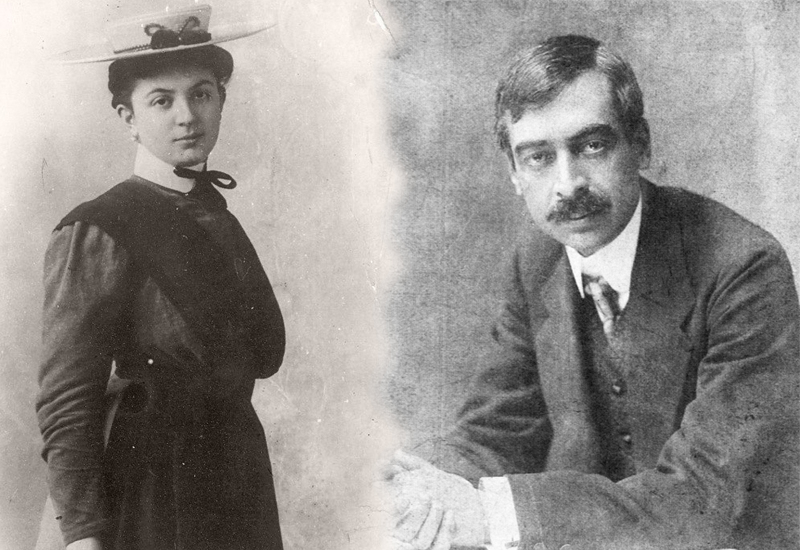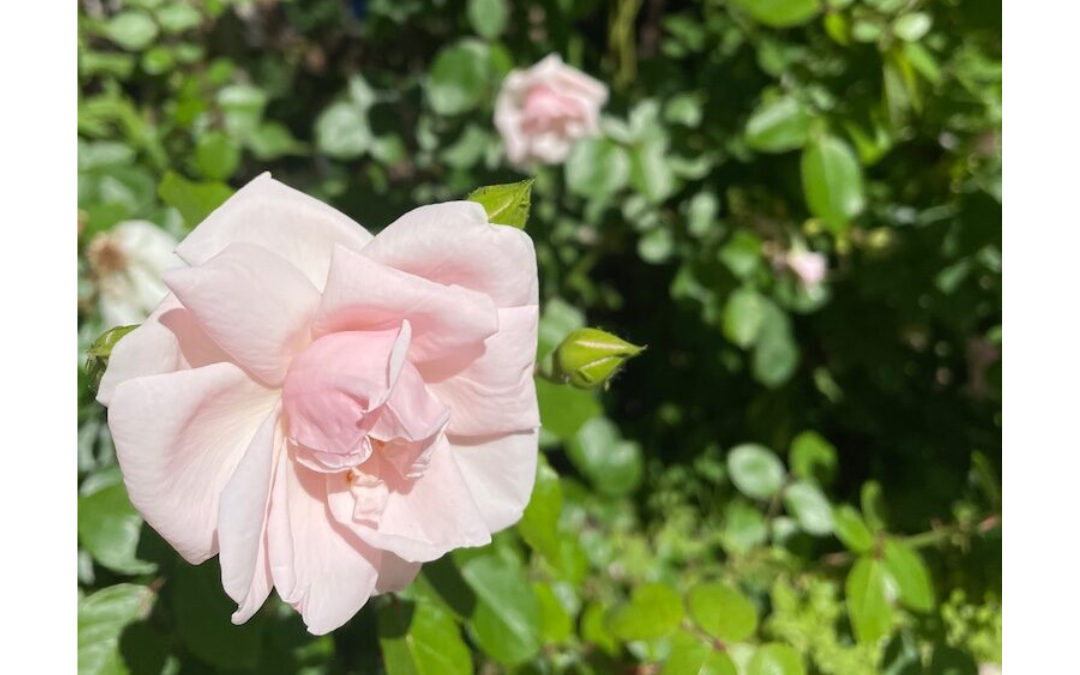Enchantress
By Peyo Javorov
Translated by Lubomira Kourteva
My soul is a humble captive,
captivated by your soul! – a captive,
is my soul in your two quiet eyes.
My soul adjures and begs of you:
it begs; – and I look at you; – a century has passed…
A silent enchantress is your soul.
My soul suffers in thirst and in hunger,
but your soul remains as if without a sound,
your soul, both child and divinity…
Silence reigns in your eyes:
perhaps because your soul is shy
in its celebration of magic’s triumph.
Вълшебница
Пейо Яворов
плени я твоята душа! – пленена,
душата ми е в тихи две очи.
Душата ми те моли и заклина:
тя моли; – аз те гледам; – век измина…
Душата ти вълшебница мълчи.
Душата ми се мъчи в глад и жажда,
но твоята душа се не обажда,
душата ти, дете и божество…
Мълчание в очите ти царува:
душата ти се може би срамува
за своето вълшебно тържество.
About {poetry translations}:
Many, many, years ago my grandparents gifted me a beautiful book, the historical novel “The Iron Candlestick” by Dimitar Talev (“Железният Светилник” от Димитър Талев), which is one of the most treasured gems in Bulgarian literature. On the inside of the book they had written me a dedication: “To Lubomira, with so much love and deep respect, with the hope that no matter where she finds herself in this beautiful world, her love for her home land and her heritage will never burn out.”
And here I am. Still burning. Still, never forgetting. My heart is too big.
{poetry translations} is my new series in which I will delve into the hard task of translating poetry. As this year is coming to a close, many people say “let go of the old to take it the new”. And sure, we need to de-clutter, always. But it is just as important to stay close to our roots, remembering those who came before us; those who paved our way, as the land today is the one we borrow from the future generations also. I believe that old and new can dance together, weave together, and hold each other’s hands. I believe knowing our roots, knowing history, is a devotion to never forget, so that truly new things can unfold. This is why I dedicate part of Art of Love to retelling old stories and lore in my series The Story Threads.
Having lived across three continents, I’ve not only been blessed to experience new cultures and traditions, but I’ve also seen how new worlds open when we speak another language. Just by learning a new word, a new world opens, a new experience is felt through our body. And we also open up new worlds for others to experience, when we can gift the gift of translating works made of love.
While all literary works are hard to translate, poetry certainly takes the crown as the hardest one. It not only requires the translator to understand the depth and essence of the poem, but then they have to allow the “other” language to carry its meaning forward. Words while they could be literally translated, don’t necessarily carry the same meanings. And in many ways, I feel that translations are a work of artists, a way of dancing with, and in-between, worlds, re-shaping words while allowing the thread of love to carry forth the essence and meaning of the poem’s heart. Hopefully, I’ll do these older poets and poetesses the justice they deserve, and hopefully, for you, my dear reader, I can open up another world, of touching the heart of foreign words.
About the poem and the author:
Peyo Javorov (Пейо Яворов) (1878-1914) was one of the most beloved and brilliant Bulgarian poets. He was recognized internationally, and the Yavorov Peak on Livingston Island in Antarctica is actually named after him. Even today, he is still considered to be one of the finest poetic talents in all of Bulgarian history.
Javorov’s poetry is romantic, beautiful, emotional, and one that people can’t help but fall in love with. Equal parts tender and brooding, with deep sensitivity and sentimentality, his poetry grabs you by the throat, and heart, and demands your full attention, with a sacred intimacy.
Javorov was part of the Symbolist movement, weaving natural imagery and metaphors to express the universal and the spiritual, tackling themes of love, trust, purity, temptation, faith and predestination. In its essence, symbolism, as described in the Symbolist Manifesto (“Le Symbolism”) by Green poet and essayist Jean Moreas, sets out to “clothe the Ideal in a perceptible form” and to reject “plain meanings, declamations, false sentimentality and matter-of-fact descriptions.”
This is particularly true of Javorov’s sublime love poetry, as it marries the physical with the spiritual, and the sacred; as the lover’s beauty, and the intimacy of the bond that the two of them share, transcends the love to a realm and a world, from a time before time beyond time. There is fatedness. There is soul connection. There is ethereal depth, meaning and beauty.

Mina Todorova and Peyo Javorov
Love enchants our soul…
Love is like a sweet scent in the air endlessly and tirelessly calling us towards itself. And then two worlds meet, they touch, they kiss. Eyes meet and eyes know. And soul kisses soul on the lips. And we find that love wasn’t only felt in our hearts all along the pathways of our life, but it is known by our eyes and hands and lips also.
Love flows without a sound, without a language. It is like a hidden, unspoken prayer, praying us towards itself. Throughout our life we walk along our unique paths, being pulled towards horizons, our eyes shifting in the distance as if we are searching for something, waiting for something, longing for something – what is this feeling, why is this feeling?
It’s magic. An enchantment, a spell. Secret threads pulling us.
Until one day we find ourselves before the landscape that embodies everything we’ve ever felt and dreamt of throughout our life. In two quiet eyes, we see it.
We know it: This is the one I was made for.
This beautiful poem was first published in 1906, and was dedicated to Mina Todorova. As we saw in Javorov’s You will be in white, Mina was his one love that inspired a world within him like no other: a world where love was so sacred, so sublime, that it transcended the physical limitations and boundaries of life. The love he felt for her was like a temple. Temple of his soul. She was his temple. She held his soul and his heart in peace, love, hope and warmth.
In such temples, we find the calmness that we long for. It feels like home. It feels like our soulskin. This is why true love is often described as “feeling peaceful in their presence”. And we surrender to it, knowing we have no other way than to give ourselves entirely to it. It’s not a question, it’s not a hesitation, it’s a knowing. We do it not “because”, we do because our soul asked us to.
We kneel before the altar of the face of our beloved. It is ethereal – the world of silence which enwrapps our entire being as the confession of love is a quiet thing, but a powerful thing. The physical, the time, the skins, all suddenly become irrelevant in importance. Because love is a knowing and of being known, a seeing and of being seen, not of flesh, but through the flesh. All “seeings” of the mind and the physical evaporate in the horizons, and all that is left is the humility of our spirit in the arms of love. Love is a song, a prayer, and we are being prayed.
In a kind of disembodiment, love enwrapps our souls.
And yet there is a hunger, a thirst, a deep raw passion and desire that nothing else could ever fulfill but our beloved. It is animalistic. It is a beautiful wild creature that lives underground, that burns in heat, and we live off of that heat.
And yet love is also pure, like a divinity. And it is also innocent and true, like a child’s heart. It is enormous while being tiny; it is distant and untouched while being curious and playful in the mud.
Love is everything. Angelic purity of impulse with sultry desire of the flesh.
In the temple of love, silence speaks. The feelings are deeper and more powerful than anything else in life. It is a knowing. And we find that not all can be or should be worded. In the intimacy of our two souls, the magical mystery of love is recognized through the enchantment of the feeling that raised us, held us, lifted us. This is the “magical celebration” at the end of the poem. It is the moment when we can lay beside our beloved and settle into the simple perfection of just knowing them. No words are needed. A shared silence of only feelings is what will enter the soul of the matter. Because soul-sized is tha land of our heart, and that’s the land that truly matters.
A Sacred Love: Mina Todorova and Peyo Javorov
Mina Todorova was one of Javorov’s greatest inspirations, and thought to have been his one big love, though the poet later on married and dedicated many poems to his wife Lora Karavelova also. He actually met both Lora and Mina around the same time in 1906. Undoubtedly though, he dedicated himself to romance only Mina. He was so God-smacked in love with her at first sight, smitten with her innocence, beauty and tenderness, that as soon as he came home after first seeing her, he wrote the poem “Annunciation” (“Благовещение”):
“A cool breeze from angel’s wing, Oh angel, Oh child, zephyr from angel’s wing across the heat of my forehead, as if I fall into a gentle dream … and the dawn is dawning outside the window.”
Romantic as he was, Javorov was charming her with many handwritten letters, in which he always referred to her as “angel”. Skeptical at first, Mina wrote in one of her replies, “I can’t make sense of what will come out of this. I am so young, and you are a poet.” He didn’t give up though, and step by step, Mina began to fall in love with him also.
They continued their long distance correspondence for the next three years, and their love grew stronger and stronger. But Mina’s parents disapproved of the relationship and so their love remained secret, and most probably, remained in the realms of the emotional, spiritual and non-physical. Though this didn’t make it any less passionate, and the fires were burning powerfully for both of their bodies.
In June 1909, they saw each other for the last time, and then, they promised to meet again despite family’s disapproval and all other challenges in two years time, when they will be together forever. Tragically, Mina fell ill with tuberculosis shortly after; her family sent her to Paris for treatment. Desperate to meet her, the poet travelled to France to see her, but her family once again forbade him. Mina passed away in July 1910. Javorov was completely devastated. For six months after, every day, he’d visit her grave and stay there. It is said that he never got over her loss, and that she remained his one true love.

Peyo Javorov's handwriting, from his diaries
Poems like “Enchantress”, “Two Lovely Eyes” (“Две хубави очи”) and “You will be in white” (“Ще бъдеш в бяло”) which I have translated here, portray the sacred, divine love that he felt for Mina, and how he always wanted to share his entire life with her, as her husband.
In one of his diaries, Javorov wrote:
“And in those two beautiful eyes, I had sung a song. And I had put a ring on her tender little hand. And our lips merged into one kiss, one kiss which was our vow, our oath.
(…) This was the day of the Annunciation. And I called her my God’s gift for this life.”
Javorov often shared in his diaries that the feelings he felt were just too big and strong for poetry, and that he should perhaps experiment with other genres. I can only imagine if he had written a novel, as beautiful as his diaries, how it would have stolen my heart. I think for all of us writers, we should always stay curious and try to experiment with other genres, to allow more freedom of expression, for the soul to shape its way as it needs, through our hands.
To Javorov, Mina was his soulmate.
Of course, there were other loves. Perhaps many others, as some people say. But Mina is Mina, only Mina.
When the heart speaks, nothing else matters. And sometimes we just know, even if it’s from a distance, even if we can’t see nor touch each other yet, even if there are perpetual questions that the mind wants to ask because it just doesn’t make any sense, even if we don’t really “know” each other yet, we know: He is the one I was made for.
With love + gratitude,

Love poetry?
This was part of my {poem + story} series where I share new poems, inspirations and art. You can also read poems from my two full-length poetry books in my poetry section, and learn more about my books, Moonhold (2019) and The God-like Things (2021). Both are available for purchase, signed copies upon request.
You can also read my essay on “The Power of Poetry” published in The Poetry Question Journal, on the connection between poetry and mysticism.
And if you’ve missed it, you can read my other two {poetry translations} You will be in white by Peyo Javorov, Two lovely eyes by Peyo Javorov, and Pagan Love by Dora Gabe.
If you are a Bulgarian poet/writer wanting your work translated by me, you’re absolutely welcome to contact me.
I love what I do, and if you want to support me, you can do so by sharing my articles and poems, buy my books or donate some magic coins in my hat on Paypal. If you would like to work with me, visit my Sacred Offerings.
Your support means so much to me! Thank you wholeheartedly!

